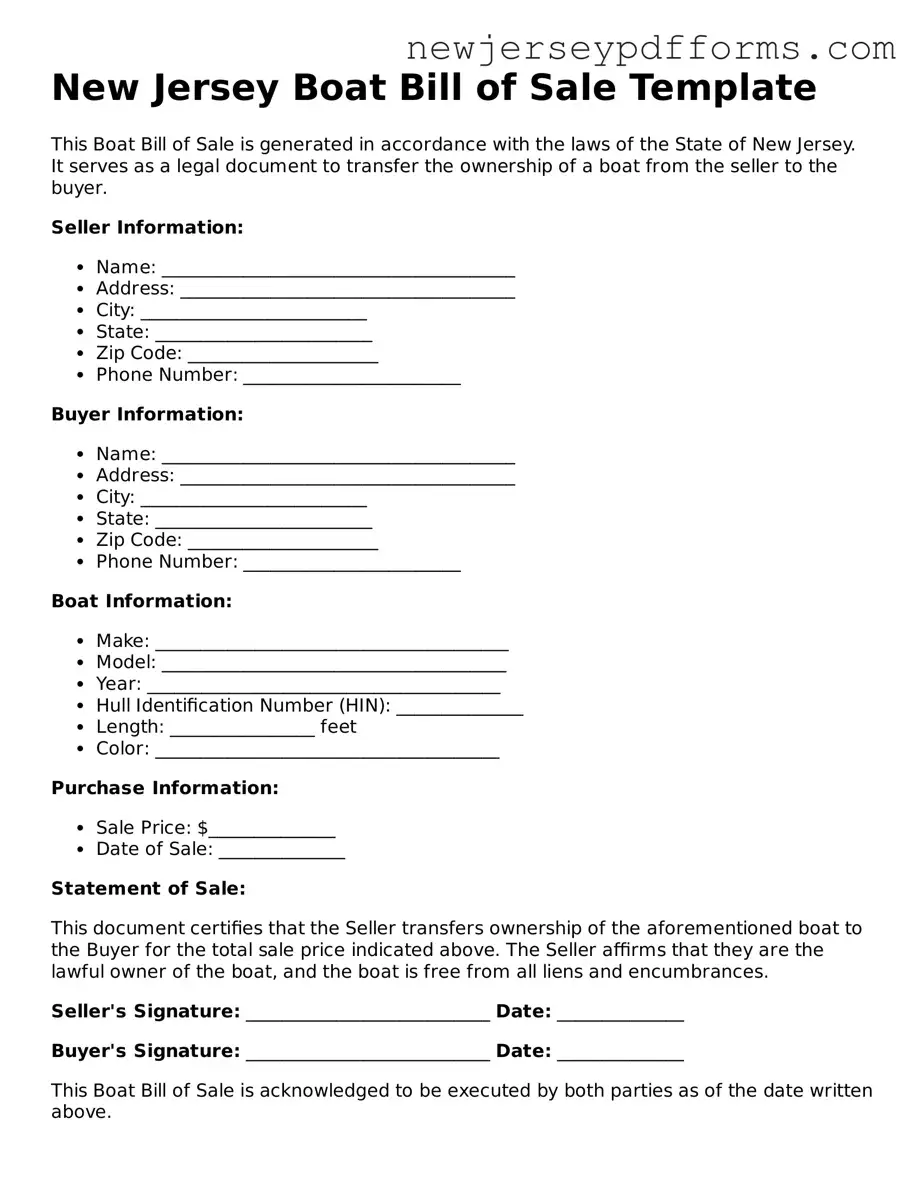The New Jersey Boat Bill of Sale form shares similarities with the Vehicle Bill of Sale. Both documents serve as proof of ownership transfer from one party to another. Just like a Boat Bill of Sale, a Vehicle Bill of Sale includes essential details such as the buyer's and seller's names, addresses, and signatures. Additionally, it outlines the vehicle's identification number (VIN) or the boat's hull identification number (HIN), along with the sale price. This documentation is crucial for registering the vehicle or boat with the state and can also be used for tax purposes.
Another document akin to the Boat Bill of Sale is the Motorcycle Bill of Sale. This form functions similarly by recording the transfer of ownership of a motorcycle. Like the Boat Bill of Sale, it includes vital information such as the motorcycle's make, model, year, and VIN. Both documents help protect the rights of the buyer and seller by providing a legal record of the transaction. Furthermore, both forms can be used to establish the legitimacy of the sale in case of disputes or for future registration needs.
The Snowmobile Bill of Sale is yet another document that mirrors the Boat Bill of Sale. This form is specifically designed for the sale and purchase of snowmobiles. It contains comparable elements, including the buyer's and seller's information, a description of the snowmobile, and the sale price. Just as with boats, having a Snowmobile Bill of Sale ensures that both parties have a clear understanding of the transaction, and it can be beneficial for registration and ownership verification.
In a similar vein, the ATV Bill of Sale serves as a document for transferring ownership of all-terrain vehicles. This form is structured like the Boat Bill of Sale, capturing essential details such as the buyer's and seller's names, the ATV's make and model, and the sale price. By providing a written record of the transaction, this document helps to prevent misunderstandings and serves as proof of ownership for the new owner, just like the Boat Bill of Sale does for boat owners.
The Trailer Bill of Sale is also comparable to the Boat Bill of Sale, as it documents the sale of a trailer. This form includes important information such as the trailer's description, identification number, and the details of both the buyer and seller. By providing a clear record of the sale, it helps protect both parties involved in the transaction. Just like the Boat Bill of Sale, it is essential for registration and can be useful in case of disputes or for tax purposes.
Lastly, the Personal Property Bill of Sale encompasses a broader range of items but shares fundamental characteristics with the Boat Bill of Sale. This document can be used for various personal property transactions, including boats, vehicles, and other valuable items. It captures the essential details of the transaction, including the buyer's and seller's information, a description of the item, and the sale price. This versatility allows it to serve similar functions as the Boat Bill of Sale, providing legal proof of ownership transfer and protecting both parties' interests.

